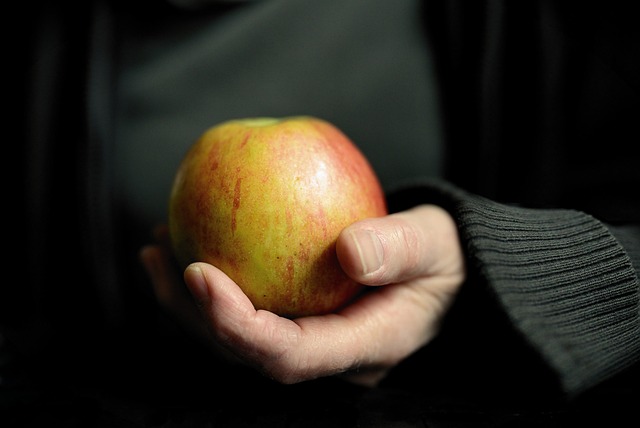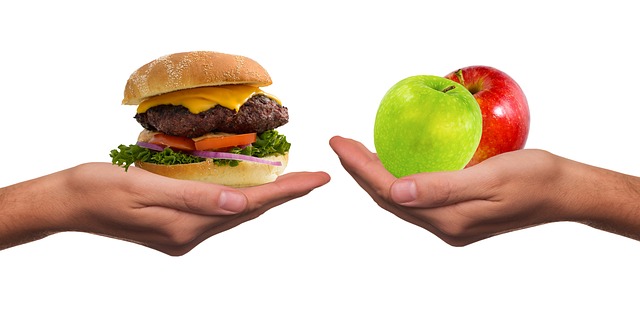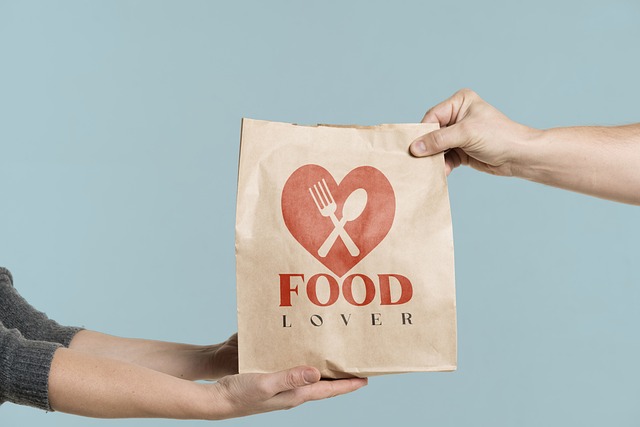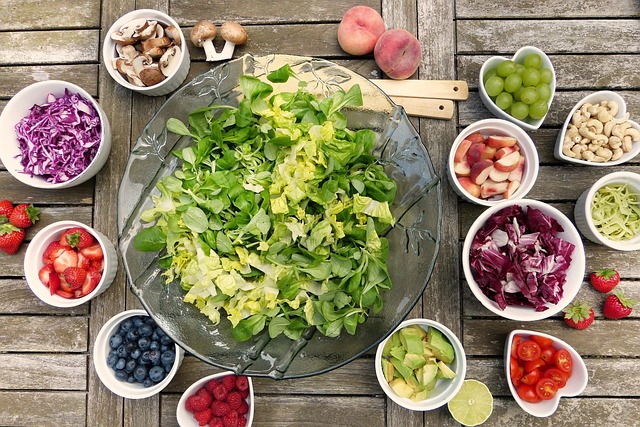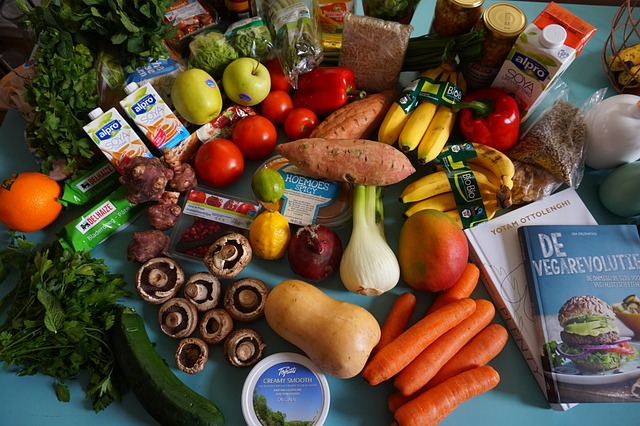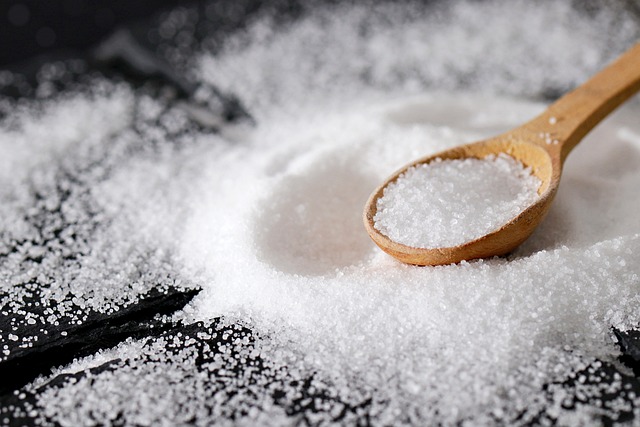Healthy Food on a Diet For All Ages: 10 Important Foods You Must Include in Your Daily Diet for Optimal Health
Eating healthy while on a diet can be difficult, but it doesn't have to be.
Making small changes to your diet can help you reach your health and weight loss goals without sacrificing flavor or nutrition or ever actually 'going on a diet'.
Here are some tips for eating healthy on a diet:
1. Choose nutrient-dense foods
2. Avoid processed foods
3. Eat plenty of fruits and vegetables
4. Choose plant-based proteins
5. Include healthy sources of fat like nuts and seeds
6. Drink plenty of water
7. Limit added sugars and salt
By following these tips, you can create a balanced diet that is both nutritious and satisfying while still helping you reach your weight loss goals. Read on to discover more tips like this.
Benefits of Healthy Food, Whether You are on a Diet or Not
Eating healthy is beneficial for everyone, regardless of whether you are on a diet or not.
Eating nutrient-dense whole plant foods can help you with:
- Reducing your risk of chronic diseases
- Providing essential vitamins and minerals
- Improving potential lifespan
- Improving mood
- Reducing stress
- Increasing energy levels
... and much more! So, whether you are on a diet or not, eating healthy is always beneficial.
Healthy Diet for Adults
Eating healthy is especially important for adults, as it can help reduce the risk of chronic diseases and improve overall health.
Adults are at an increased risk of developing chronic diseases such as risk of heart disease, weight gain, stroke, diabetes, high blood pressure and certain types of cancer.
These conditions can be caused by a variety of factors, including poor diet and lifestyle choices.
Eating a whole food plant-based diet can help reduce the risk of these chronic diseases by providing essential phytochemicals and other nutrients that are not found in processed foods.
Plant-based diets also tend to be lower in saturated fats and higher in fiber than other diets, which can improve your gut microbiome, help reduce cholesterol levels and improve overall health.
Also, plant-based diets are richer in antioxidants, up to 84 TIMES as much antioxidant content as animal foods! This can help protect against cell damage from free radicals.
By eating a balanced whole foods plant-based diet, adults can achieve and maintain a healthy weight, reduce their risk of chronic diseases while still enjoying delicious meals.
Healthy Diet for Infants and Young Children
It is important to ensure that infants and young children are getting the proper nutrition they need to grow and develop.
Eating a healthy diet can help ensure that your child is getting all the essential vitamins, minerals, and nutrients they need.
For infants, breast milk should be the primary source of nutrition until around 6 months of age.
After 6 months, solid foods can be introduced and should include a variety of fruits, vegetables, whole grains, legumes, nuts and seeds.
For young children, it is important to ensure that they are getting a balanced diet that includes all the essential nutrients. This means focusing on whole plant foods such as fruits, vegetables, whole grains, legumes, nuts and seeds.
It is also important to limit added sugars and salt in their diet as these can be detrimental to their health.
By following these tips, you can create a balanced diet that is both nutritious and satisfying while still helping your child reach their growth and development milestones.
This can also help prevent chronic diseases as your children grow up, such as overweight, diabetes and high BP, as healthy eating habits are established early on in life.
Going on a Diet vs Healthy Lifestyle Changes
| Diet | Lifestyle Changes |
| Restricts certain foods or food groups |
Focuses on making healthy lifestyle choices |
| Can be effective in the short term |
Can be sustainable in the long term too |
| May not be sustainable in the long term | Encourages healthy eating habits that last long |
| Focus is usually on weight loss | Focus is on overall health and wellbeing |
Advantages of Using Meal Delivery Services for Healthy Eating on a Diet
Meal delivery services are becoming increasingly popular for those looking to eat healthy on a diet.
Meal delivery services provide pre-prepared meals that are tailored to meet specific dietary needs and preferences. It's super convenient!
This can be especially helpful for you if you don't have the time or resources to prepare your own healthy food everyday.
Advantages of using meal delivery services for healthy eating on a diet include:
1 . Convenience: Meal delivery services make it easy to stick to a healthy diet. All the meals are pre-prepared and delivered right to your door, so you don't have to worry about grocery shopping or meal planning.
2. Variety: Meal delivery services offer a wide variety of meals that can be tailored to meet specific dietary needs and preferences. This means you won't get bored with your meals and can enjoy a variety of flavors.
3. Nutrition: Meal delivery services provide meals that are nutritionally balanced and contain all the essential vitamins, minerals, phytonutrients, fiber and nutrients you need to stay healthy on a diet.
4. Cost-Effective: Meal delivery services are often more cost-effective than buying groceries and preparing meals yourself. This makes it easier to stick to a healthy diet without breaking the bank.
Overall, meal delivery services are a great way to ensure you are getting all the essential nutrients and vitamins while still eating healthy on a diet.
With the convenience, variety and nutrition they provide, it's no wonder why meal delivery services like Sampoorna Ahara are becoming increasingly popular for those looking to eat healthy on a budget.
Accelerate Your Weight Loss with these 10 Healthy Foods from Dr. Michael Greger's Daily Dozen
Dr. Michael Greger’s Daily Dozen is a list of the healthiest foods to include in your diet for optimal health and weight loss. Apart from exercise, here are 10 of the top healthy foods from Dr. Greger’s Daily Dozen that you should include in your weight loss journey:
Leafy Greens
Leafy greens are an essential part of any healthy diet, and they should be included in your weight loss journey.
Green vegetables are the healthiest vegetables by antioxidant content!
Leafy greens are low in calories and high in fiber, vitamins, minerals, and antioxidants. They can help you feel full for longer periods of time, which can help with weight loss.
Some of the best leafy greens to include in your diet are kale, spinach, amaranthus greens, malabar spinach or basale, coriander leaves, and pudina or mint leaves.
Cruciferous Vegetables
Cruciferous vegetables are a great addition to any weight loss journey.
They are low in calories and high in fiber, vitamins, minerals, and antioxidants.
Cruciferous vegetables are the most powerful anti-cancer vegetables we today.
Cruciferous vegetables include broccoli, cauliflower, cabbage, Brussels sprouts, kale, bok choy, radish, turnip, mustard leaves and arugula.
Other Vegetables
Other vegetables are also important to include in your weight loss journey, whether they root vegetables like carrot or pod vegetables like okra.
Vegetables are low-calorie, high-fiber and water foods. They are packed with vitamins, minerals, and antioxidants.
They can help you feel full for longer periods of time and provide essential nutrients that your body needs to stay healthy for longer.
Some other vegetables to include in your diet are snake gourd, pumpkin, carrot, capsicum, tomato, onion, sweet potato, brinjal, okra or ladies' finger, beetroot, and chow chow.
Pulses and Legumes
Pulses and legumes are an important part of any healthy diet, especially for those looking to lose weight.
They are rich in fiber, protein and a type of starch called resistant starch.
Resistant starch helps to slow down digestion and keep you feeling full for longer periods of time, and also build up your good gut bacterial colonies.
Some of the best pulses and legumes to include in your diet are chickpeas or chana, lentils or dals, kidney beans or rajma, black-eyed peas or cowpeas, whole green moong, double beans, fava beans, and brown chana.
Nuts and Seeds
Incorporating nuts and seeds into a weight loss plan is beneficial due to their richness in healthy fats, protein, dietary fiber, vitamins, minerals, and antioxidants.
Research surprisingly shows that adding nuts to your diet can actually support weight loss, due to their high fiber content and ability to boost metabolic rate.
Some of the best nuts and seeds to include in your diet are almonds, walnuts, pistachios, flaxseeds, chia seeds, pumpkin seeds, sunflower seeds, and sesame seeds.
Flaxseeds have their own spot on Dr. Greger's Daily Dozen. You will see why below.
Whole grains
Whole grains are an important part of any healthy diet, especially for those looking to lose weight.
Whole grains like brown rice instead of white rice, millets and whole wheat are packed with fiber, vitamins, minerals, and antioxidants.
They can help you feel fuller with lesser amounts, for longer periods of time! They are a great source of fiber for your good gut microbes too.
Some of the best whole grains to include in your diet are oats, quinoa, brown rice, millets, buckwheat, and whole wheat.
Spices & Herbs
Spices and herbs are an essential part of any healthy diet, especially for those looking to lose weight. They not only add flavor to your food but also provide a range of health benefits.
Did you know that spices like turmeric, ginger, and cumin can help boost your metabolism and aid in weight loss?
Spices and herbs are also the highest antioxidant foods in the plant kingdom!
Some of the best spices and herbs to include in your diet are turmeric, ginger, cumin, coriander, cinnamon, cardamom, black pepper, fenugreek leaves or methi leaves, oregano, basil leaves or tulsi leaves.
Fruits
Fruits are an important part of any healthy diet, especially for those looking to lose weight.
Fruits can help you avoid sugary drinks and energy drinks, and provide you with essential vitamins, minerals, and antioxidants.
Remember not to add dairy products to your smoothies as this can blunt the health benefits that you can otherwise get from fruits.
Fruits like apples, oranges, pears, berries and melons are great sources of fiber and can help you feel full for longer periods of time.
Berries
Berries are the healthiest fruits you can include in your diet.
Any small edible fruit is considered a berry, and they come in a variety of colors and sizes.
Berries are packed with vitamins, minerals, antioxidants, and fiber that can help support weight loss and overall health.
In India, two of the most popular berries are amla (Indian gooseberry) and raisins.
Amla is a great source of vitamin C, iron, calcium, magnesium, phosphorus, potassium and dietary fiber. It also contains powerful antioxidants that can help protect against oxidative damage from free radicals.
In fact, amla is the highest antioxidant food ever tested!
Raisins are an excellent source of energy-boosting carbohydrates as well as dietary fiber which helps to keep you feeling full for longer periods of time.
Including berries in your diet can be a great way to get all the essential nutrients you need while still maintaining a healthy weight.
Whether it’s fresh or dried berries like amla or raisins – adding these plant-based foods to your meals or snacks is sure to give you a nutritional boost!
Healthy Beverages
Herbal and spice teas are some of the healthiest beverages you can include in your diet.
Green tea, chukku kashayam, and hibiscus tea are all excellent choices for those looking to lose weight and also to improve heart health.
These teas are packed with antioxidants that can help boost your metabolism and aid in weight loss.
Water is also an essential part of any healthy diet.
It helps to keep you hydrated, which is important for overall health and wellbeing. Drinking plenty of water throughout the day can also help to reduce cravings and keep you feeling full for longer periods of time.
While tea, coffee, and cold pressed fruit juices may seem like healthy options, they may not be as beneficial as herbal or spice teas.
Many of these drinks contain dairy products or added sugar which can add unnecessary calories to your diet.
Additionally, these drinks often lack fiber which leads to a blood sugar spike after you consume them, orange juice for example has this issue.
I would choose fresh fruits or smoothies over fruit juices any day!
Including herbal or spice teas in your diet is a great way to get all the essential nutrients you need while still maintaining a healthy weight.
Whether it’s green tea, chukku kashayam or hibiscus tea – adding these plant-based beverages to your meals or snacks is sure to give you a nutritional boost!
In addition to herbal and spice teas, there are other healthy beverages that can help support weight loss and help you avoid unhealthy foods like sugary drinks and milkshakes.
Coconut water is an excellent source of electrolytes and minerals that can help keep you hydrated and energized throughout the day. It also contains a small amount of natural sugars that can help curb cravings for unhealthy foods later.
Flaxseed Powder
Research has shown that flaxseed powder can reduce blood pressure as powerfully as some leading antihypertensive medications.
A recent study found that consuming just 2 tablespoons of flaxseed powder daily for a few weeks significantly reduced blood pressure levels in participants with hypertension.
Flaxseeds are also a great source of lignans, which are plant compounds with potent anti-cancer properties and may help to prevent other health conditions too. Flaxseeds may contain more than 100 times more lignans than any other food, making them an excellent choice for those looking to improve their overall health.
Flaxseeds are also a rich souce of omega-3 fatty acids, which are fatty acids that are great for your health.
Including flaxseeds in your diet is easy!
- You can add ground flaxseed powder to smoothies, oatmeal, plant-based yogurt, or even baked goodies like muffins or breads.
- You can also sprinkle it on salads, starchy foods like roasted potatoes or mix it into sauces and dressings for an extra boost of nutrition.
- You can even make your own flaxseed milk by blending one cup of water with two tablespoons of ground flaxseeds until smooth.
Practical Tips to Follow Healthy Food on a Diet
Eating healthy on a diet doesn't have to be difficult or boring. With the right knowledge and practical tips, you can enjoy nutritious meals while still achieving your weight loss goals.
1. Eat plenty of fruits and vegetables: Fruits and vegetables are packed with essential vitamins, minerals, and fiber that can help you stay healthy while on a diet. Aim to include a variety of colors in your meals to ensure you get all the nutrients you need. Each color may be a different set of phytonutrients with unique health benefits!
2. Choose whole grains: Whole grains provide complex carbohydrates that will keep you feeling full for longer periods of time. Try incorporating oats, quinoa, brown rice, or barley into your meals for added nutrition and fiber, instead of white rice and maida.
3. Include plant-based proteins: Plant-based proteins such as dals, lentils, legumes, pulses, whole grains, nuts, and seeds are excellent sources of protein that can help keep you feeling full without adding extra empty calories or unhealthy fats to your diet like lean meats and oily fish can.
4. Avoid processed foods: Processed foods often contain added sugars and unhealthy fats that can lead to weight gain. Instead opt for fresh ingredients when possible and limit processed foods as much as possible. A diet rich in whole foods can help you achieve a healthier diet, and reduce risk for heart disease or cardiovascular disease.
5. Drink plenty of water: Staying hydrated is key for overall health and wellbeing while on a diet! Make sure to drink at least 8 glasses of water per day to keep your body functioning properly and reduce cravings for unhealthy snacks throughout the day.
How to Create a Healthy Diet that is Balanced?
The Physicians Committee for Responsible Medicine (PCRM) Power Plate is a great tool to help you build a healthy and balanced diet. It divides your plate into four sections: fruits, vegetables, whole grains, and legumes.
Each section should be filled with nutrient-dense foods that are low in saturated fat, cholesterol, and sodium.
The PCRM Plate also encourages you to include plant-based proteins such as beans, nuts, seeds, and tofu in your meals.
Dr. Michael Greger's Daily Dozen explained above is another helpful tool for building a healthy and balanced diet.
This list includes 12 recommendations - including 10 food groups - that should be included in your daily meals. By following the Daily Dozen guidelines, you can ensure that you’re getting all the essential nutrients your body needs each day.
Sampoorna Ahara's Meal Delivery is based on the Daily Dozen - you will see a Daily Dozen score card in each monthly subscription program page, indicating how much of the various food groups the meals can help you meet.
NutritionScience.in Plant Based Diet Masterclass is an online course designed to teach you how to create a healthy plant-based diet that meets all of your nutritional needs. The course covers topics such as meal planning, grocery shopping tips, nutrition facts about plant-based foods, and more.
By following these tips and using the tools mentioned above, you can create a healthy and balanced diet that will help you reach your health goals while on a diet - and more importantly, continuing to eat healthy afterwards.
Alert: High-salt foods
Restricting salt intake to 3.5g per day or less, as recommended by the American Heart Association (AHA), is an important part of maintaining a healthy diet.
Eating foods low in sodium can help reduce your risk of high blood pressure and other health problems associated with too much salt.
The Benefits of Eating a Healthy and Balanced Diet
In conclusion, it is important to remember the basic principles of healthy eating when on a diet and afterwards too.
Eating a wide range of nutritious foods from all major food groups, including leafy and raw vegetables, can help maintain metabolic health and support weight management.
Indian food is also an excellent choice for those looking for healthy choices with its variety of spices and flavors, as long as you use whole food plant based ingredients.
Additionally, it is important to be mindful of fad diets and follow instructions from your doctor or nutritionist regarding blood glucose levels if you are diabetic or have PCOS or PCOD.
With these tips in mind, you can make sure that you are making the best dietary choices for your health, getting key nutrients and making healthier choices overall.
Next Steps:
Are you looking to eat healthy? We may be able to help you
- Book an online consultation with Dr. Achyuthan Eswar to learn how best to deal with it.
- Sign up for our Plant Based Diet Masterclass on NutritionScience.in to better understand the numerous benefits of adopting a whole food plant based diet.
- Access our free course to help kickstart your plant based food journey.
- Subscribe to our 100% whole food plant based balanced meal plan, delicious & doctor designed to help you get all your macro and micro nutrients, from the comfort of your home - Bengaluru only
- Our Healthy Executive Thali Subscription is packed with variety and affordable too - Bengaluru only
- Stock up on delicious sweets and snacks that are sugar/jaggery-free, oil-free, maida-free and plant-based - Available Pan-India
- Pizzas, Biryani, Parathas, Burgers and more! Check out our instant meals and special meals here


